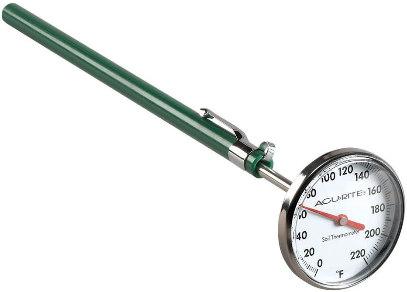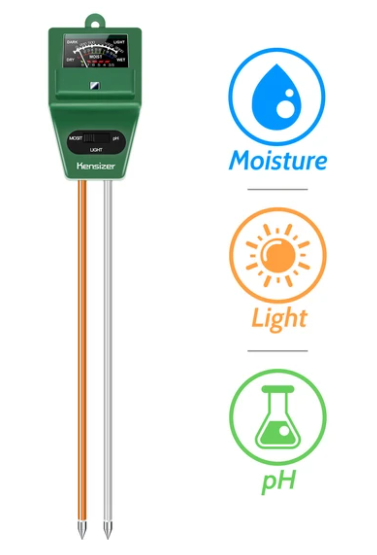Whether you are caring for your own yard or employ a landscaper, having the following information lets you make sure products your lawn, trees, shrubs, and flower gardens need are being used. You save money and the environment.
Soil Test
A soil test gives you a lot of information and measures much of what is beneficial or can hurt your lawn, trees, shrubs, and flower beds. You get information that can help you determine what kind of fertilizer or plant health products you need. It also identifies toxins, like certain salts, that can injure roots and ultimately plant health. Soil compaction and hardness is also measured so you know if roots are being strangled, nutrients are being tied up or water is being blocked or diverted from roots.
Organic Turf Trade offers soil testing through a reputable lab and includes interpretation and recommendations from a soil and water chemistry expert who has provided these services for 30 years to golf superintendents, landscapers, and homeowners, like you. Reach out through our Ask the Expert form or send us an email at yardcare@organicturftrade.com for more information. You can bring your samples to Organic Turf Trade 517 Franklinville Road, Mullica Hill, NJ 08062
Soil temperatures
- Once soil temperatures are around 55◦ Fahrenheit:
- Grass, trees, and plants can take in fertilizer better and use it more efficiently.
- Plant protection products and weed control products will also work better.
- Knowing your soil temperature also helps you to know when to turn on irrigation systems as grass cannot take up water through its roots if soil temps are too low.

pH levels – Dial in what products you use and what your lawn, trees, and plants need
- Both high and low pH affects fertilizer and water availability.
- pH also affects how well your lawn, trees, and plants thrive and survive.
- Your lawn will thrive and use fertilizer and plant protection products best when the soil pH is as close to 7 as possible.
- Your evergreens, willow, oak, and dogwood trees prefer a lower pH as do azaleas, rhododendrons, hydrangeas, and daffodils.
- On the other hand, lilacs, forsythia, barberry, and arborvitae need a higher pH soil.
- Knowing your pH levels helps you to choose trees and plants that will enjoy a better growing environment. Or for already established plants we can help you modify pH levels if necessary.

Soil moisture levels – soil water management is important all year
- Water is EVERYTHING. All living things need water to survive. Too much or too little impacts lawn, trees, and plant health.
- Measuring soil moisture helps you know when you need to water.
- It makes sure there is enough moisture for roots to take up fertilizer.
- Adequate soil moisture also helps to remove toxins from the soil.

